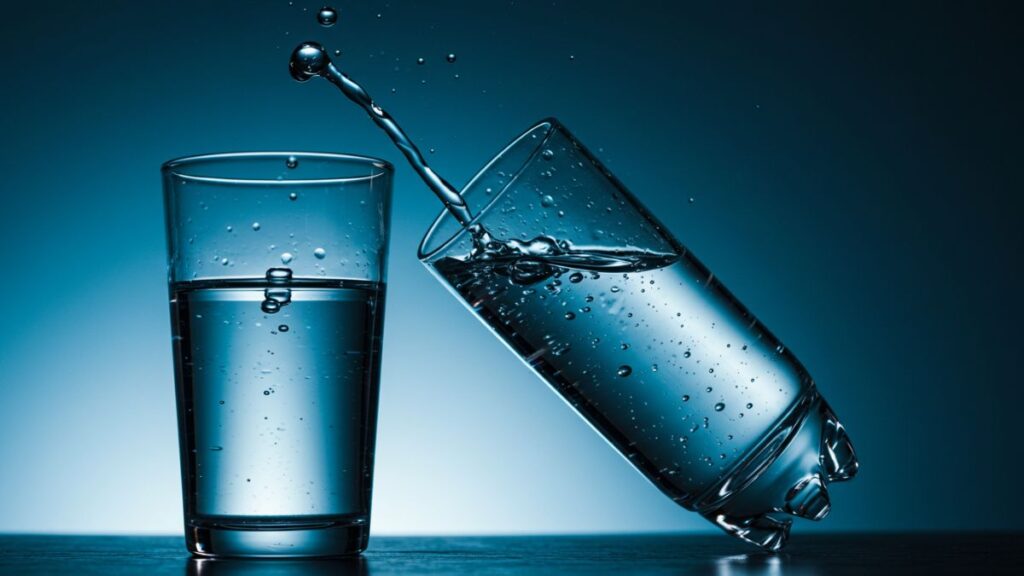Key Takeaways:
- Staying adequately hydrated is crucial for overall wellness and the efficient functioning of different bodily processes.
- Diet, physical activity, and environment influence our hydration needs.
- Identifying the symptoms of both dehydration and overhydration is essential for maintaining equilibrium.
The Vital Role of Water in Our Bodies
Water is not just a thirst-quencher but a vital component of our bodily functions, influencing every system from head to toe. This essential liquid supports myriad functions, from regulating internal temperature fluctuations to cushioning joints and aiding digestion. Interestingly, an adult human’s body comprises up to 60% water, illustrating why consistent fluid intake is paramount to preserving health.
To achieve and maintain hydration balance, individuals may explore various options, including IV therapy services, especially when rapid rehydration or nutrient replenishment is required. These services can particularly benefit those recovering from illness, intense physical activity, or dehydration. Such approaches offer a tailored solution, ensuring that the body’s hydration and nutritional needs are met effectively without disrupting daily routines.
Daily Fluid Intake Recommendations
Fluid needs are not one-size-fits-all; they vary significantly based on age, gender, activity levels, and even the prevailing weather conditions. The popular “8×8” rule, advocating the consumption of eight 8-ounce glasses of water daily, provides a helpful starting point. However, individual requirements can differ significantly, with some needing more or less depending on their circumstances.
This fluid intake doesn’t just pertain to water; beverages like tea, juice, and milk also contribute to your daily needs. Incorporating a variety of fluids throughout the day can help meet your body’s demands, ensuring all systems function efficiently.
Hydration and Physical Activity
Whether you’re an elite athlete or enjoy a regular jog, grasping how physical activity impacts hydration is critical. Exercise induces sweat—a natural bodily process designed to cool down the body, yet it loses valuable fluids and electrolytes that should be replenished. Proper hydration isn’t just about boosting athletic performance but is crucial for reducing recovery time and preventing heat-related ailments.
Proper hydration forms the backbone of any training regimen, helping maintain energy and support muscle function. It is essential to hydrate before exercising, during, and after workouts to ensure the body remains in peak condition.
Influence of Diet on Hydration
Our dietary choices deeply impact hydration levels. While drinking liquids is fundamental, foods rich in water content—such as cucumbers, tomatoes, and watermelons—significantly contribute to overall fluid intake. Additionally, beverages like milk and herbal teas hydrate and deliver essential nutrients for overall health.
Integrating a mix of beverages and water-rich foods into your meals can improve your general well-being, aiding various aspects, from digestion to skin health. Being conscious of the food and beverage options you make offers a comprehensive approach to staying hydrated.
Signs of Dehydration and Overhydration
The climate significantly influences our requirements for hydration. Warm and moist environments can increase fluid loss, whereas elevated terrains necessitate higher fluid intake. Recognizing these influences is vital for developing efficient hydration approaches, especially when traveling or modifying exercise habits. Modifying fluid consumption is essential to reduce the likelihood of dehydration and to support daily activities without health-related disruptions.
Environmental Factors Affecting Hydration
The climate plays a significant role in determining how much hydration we need. Higher temperatures and humidity levels can cause a greater loss of fluids, whereas greater elevations necessitate additional hydration. Understanding these factors is essential for creating successful hydration strategies, particularly during travel or changes in exercise routines. Adjusting fluid intake is necessary to minimize the risk of dehydration and to maintain daily activities without health disruptions.
The Role of Electrolytes in Hydration
Electrolytes are minerals crucial for maintaining fluid balance and normal body function. They include sodium, potassium, calcium, and magnesium, which are lost through sweat during physical exertion. Replacing them is crucial to avoid imbalances affecting muscle function and overall health.
Electrolyte-rich foods such as bananas, potatoes, yogurt, and sports drinks offer a beneficial way to restore these vital nutrients alongside your regular fluid intake.







